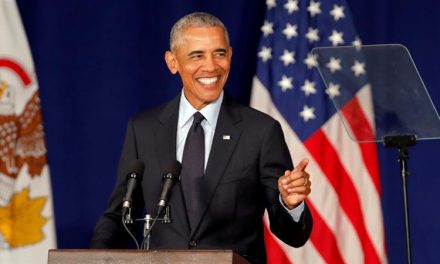A New York Times reporter named Walter Duranty won a Pulitzer Prize in 1931 for 13 articles he wrote about the Soviet Union that year. The problem is that he was far too reliant on using government sources, and his pieces also had to pass through Soviet censors. The result was ripe credulity and gross inaccuracy. Despite acknowledging this, the Times refuses to disavow his Pulitzer Prize.
Duranty’s biggest error from the 1931 pieces was his downplaying of the seriousness of Josef Stalin’s liquidation of the kulaks as part of his massive collectivization of agriculture program.
Describing the Communist plan to “liquidate” the five million kulaks, relatively well-off farmers opposed to the Soviet collectivization of agriculture, Duranty wrote in 1931, for example: “Must all of them and their families be physically abolished? Of course not – they must be ‘liquidated’ or melted in the hot fire of exile and labor into the proletarian mass.”
Taking Soviet propaganda at face value this way was completely misleading, as talking with ordinary Russians might have revealed even at the time.
But the more lasting error came in 1933, when sent a dispatch from Moscow about the Holodomor, or 1932-33 Ukrainian famine that killed over 3.5 million people, that can fairly be described as dismissive.
Even then, Duranty dismissed more diligent writers’ reports that people were starving. “Conditions are bad, but there is no famine,” he wrote in a dispatch from Moscow in March of 1933 describing the “mess” of collectivization. “But – to put it brutally – you can’t make an omelet without breaking eggs.”
His remark about breaking eggs to make omelettes has for almost a century been falsely attributed to Stalin himself, but it was Duranty who wrote the infamous words. Understandably, Ukrainians have been at the lead of people asking the Times to kiss off the reward.
Irrespective of that debate, the sentiment of the omelet quote has stuck around and is often used to describe a situation where people have to commit some wrong in the interests of some greater good. I doubt many people think the Soviets achieved a greater good by liquidating the kulaks or starving millions of Ukrainians, but people use the saying anyway.
For example, Sen. John Kennedy of Louisiana just used it in a somewhat novel way, by including his sex life during a television interview with Sean Hannity:
HANNITY: Here now, Senator Kennedy, Louisiana. Congratulations, Super Bowl, all eyes on New Orleans and your great state, sir. Congratulations.
SEN. JOHN KENNEDY (R-LA): Thank you, Sean. Let me say first, Sean, that it’s kind of cool having a president again. Let me try to put all this in context for you.
I like omelets. I mean, I really like omelets. I could eat an omelet at every meal.
I like omelets better than sex. Not really, but you get the point. I like omelets.
You can’t make an omelet without breaking some eggs. Now, President Trump ran for office saying, I’m going to review every single penny in the federal budget. Now, how are you going to review the spending in the federal budget without reviewing the spending?
And that’s what Mr. Musk is doing. Now, many of my Democratic colleagues and some of the tofu-eating Wokerati at the USAID are screaming like they’re part of a prison riot because they don’t want us reviewing the spending. But that’s all Mr. Musk is doing, and he’s finding some pretty interesting stuff. To my friends who are upset, I would say with respect, you know, call somebody who cares. They better get used to this. It’s USAID today.
It’s going to be Department of Education tomorrow. And really, here’s what’s going on. For four years under President Biden, the people in charge ask one simple question.
Who needs to pay more in taxes? Who needs to pay more in taxes? Well, that’s not the question that the Republicans and President Trump are going to ask.
Our question is, what the hell happened to the money? And that’s all that’s going on.
If Walter Duranty had referred to critics of the Holodomor as “the tofu-eating Wokerati,” I’m pretty sure the Times would have renounced his Pulitzer Prize long ago. In this case, Kennedy is giving the fascist regime’s party line, and it’s a very inaccurate description of what is going on. But by using the omelet analogy, Sen. Kennedy is at least implicitly acknowledging that there is some mess being created. There’s something wrong. He doesn’t say what is wrong, exactly, only that the ends will justify the means.
It’s not very convincing when you consider he is comparing the illegal closing of the USAID department and the gutting of the Department of Education to the murder of millions of innocent people. I’m hopeful that this is an exaggeration, although the body count from interruptions or discontinuance of foreign aid could be staggering and conceivably exceed the Holodomor.
Backsliding in AIDS, malaria, tuberculosis and starvation prevention is one thing. But if Trump gets away with neutering Congress and establishing a dictatorship, we’ll lose our freedom. That seems like a high price for paying less in taxes. I think we’d all rather have the eggs than that omelet. And we’d definitely prefer sex.
These things will continue until the fascist regime is defeated.








Q Anon runs the Republican Party.